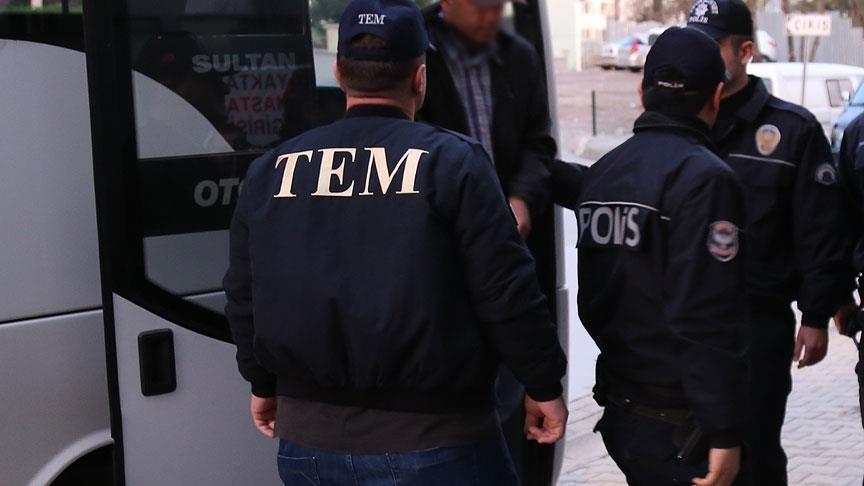
Turkey has deported 7,918 foreign terrorists of 102 different nationalities so far, Interior Minister Süleyman Soylu said on Feb. 27.
Speaking to Anadolu Agency, Soylu stated that Turkey also banned the entry of over 90,000 foreigners affiliated with terrorist organizations.
Turkish authorities have been in contact with countries such as Germany, the United Kingdom and Spain, and established joint mechanisms in order to solve foreign fighters problem, the minister added.
Forty-eight terrorists surrendered this year after being persuaded by Turkish security forces, the minister noted.
Soylu argued that the PKK “rests on the shoulders of women, with their
participation in terror acts at 56 percent.”
“All of our institutions are engaged in the fight against terror, but
it will end only with the courage of mothers,” he added.
A sit-in by mothers, whose children have been reportedly kidnapped by the PKK, in Diyarbakır started last September. Their persistence has persuaded many militants to return home.
Soylu also said that the government is preparing a “great Istanbul plan” for a possible major earthquake that is expected to jolt Istanbul, Turkey’s economic hub.
A 5.8-magnitude earthquake that jolted Istanbul in September 2019, was a “red alert” for the government, which decided to bolster its action plan against a great tremor in the metropolis, he said.
Istanbul, a quake-prone city that straddles Europe and Asia, sits on three major seismic fault lines.
The minister said that there is a “Turkey Disaster Response Plan” which thoroughly determines what to do when faced with an emergency. The plan was shaped during the period of the ruling Justice and Development Party (AKP), he said.
“We are preparing a major Istanbul plan for a possible big earthquake in Istanbul,” Soylu said, adding that there are 18 national and 26 local working groups as part of Turkey’s plan against disaster, and these teams have convened for nearly 300 times since September.
The minister added that he chaired five of these meetings.
“What will happen to the traffic-safety when an earthquake happens in Istanbul? How will help arrive? How will the burials take place or how the hospitals’ will evacuate [citizens]?” he said.
“What matters is prompting joint action for all institutions, providing synchronization and minimizing all losses.”
Turkey, which straddles seismic fault lines, is prone to earthquakes and has a history of powerful tremors. Two of the most recent quakes jolted eastern provinces of Erzincan, Malatya, and Van in the last month.
Referring to these earthquakes, Soylu said that one of Turkey’s strong suits is research efforts when faced with such disasters. He said that the rescue teams saved some 45 people under the “challenging” debris during the 6.8 quake in Elazığ in January.